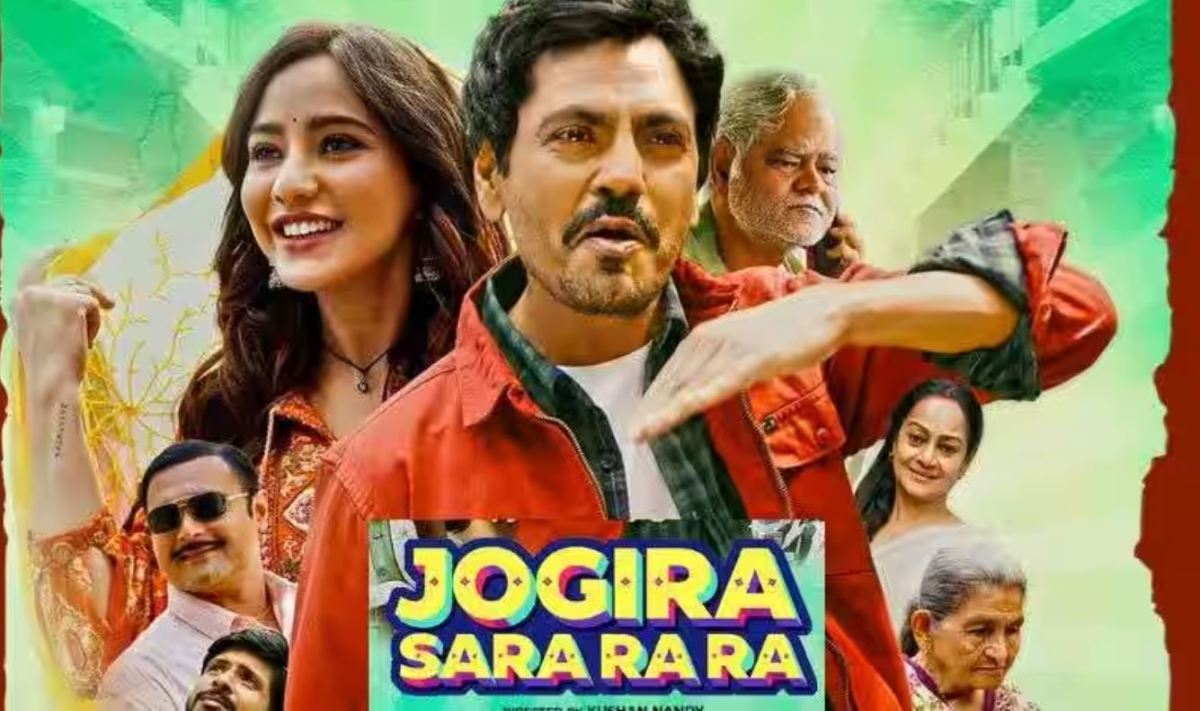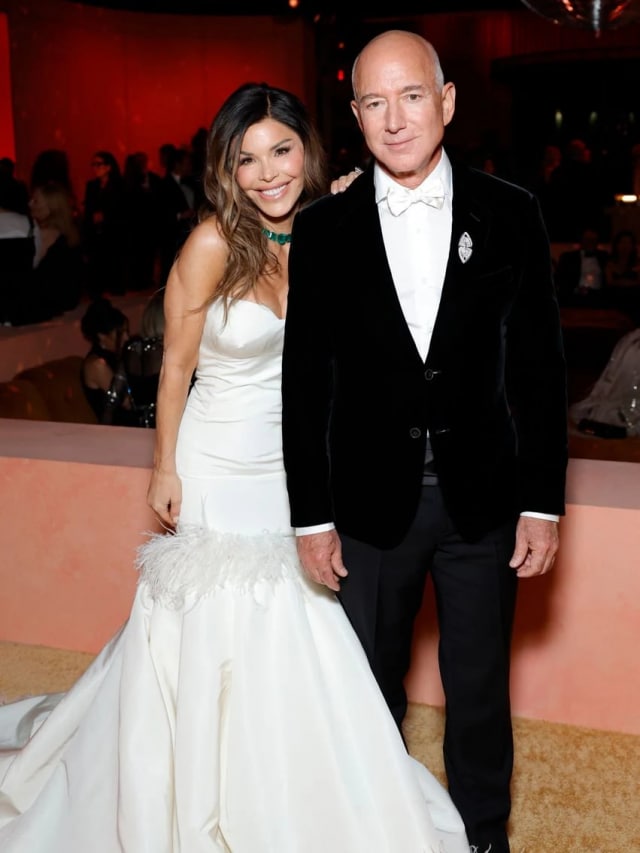
This jugaadu script is anything but a family entertainer – Beyond Bollywood
Nawazuddin Siddiqui, Mahaakshay Chakraborty and co, put up a fine show, but it was never going to be enough to lift this dour story, screenplay.
Rating: ⭐️⭐️
By Mayur Lookhar
Weddings in humble households, small towns tend to have their share of gatecrashers. Usually, it is free food that the gate crasher is after. The pretty lass here is out for free drinks. She burns the dance floor crooning ‘Shaadi toh ek torture hai’ (Marriage is a torture). The bride’s family haul up event organiser Jogi Pratap [Nawazuddin Siddiqui], who swings into action before things get more embarrassing for his clients.
The Bareilly man evicts the girl. She claims that she ran away from home, stole plenty of cash just to elope with her boyfriend. He ditched her. Naturally upset, the girl shelled money on shopping then lost her purse. The depressed lady then gatecrashed into the wedding for free food and drinks. Had she not crooned the untimely song, she sure would have binged on wine and food all night.
Dimple Chaubey [Neha Sharma] though meant every word of the song. She has no interest in marriage. And neither does Jogi, known in Bareilly as the jugaadu man [make shifter / Jack of all trades]. The jugaadu nature though is seriously questioned as things that Jogi does from hereon, all boomerang. Nevertheless, these individuals are destined to bump into each other again.
Dimple is the daughter of Jogira’s next client. She is to wed one Lallu – yes, that’s the name. Dimple hires Jogi to do something that will break this wedding. Lallu [Mahaakshay Chakraborty] is head over heels for the Bareilly beauty. One of the early jugaads of Dimple and Jogi is to KILL Lallu. Phew, is this supposed to be a romantic comedy or a black comedy? When the early jugaads don’t work, Dimple plots her own kidnapping with Jogi executing it.
Such tropes aren’t new. Earlier you took them lightly but it gets worrying if these self-kidnapping, jovial kidnapper tales are glorified and passed off as family humour. The current state government in Uttar Pradesh has zero tolerance towards criminals. The recent encounter killings of dreaded dons are testimony to it. A Phas Gaye Re Obama [2010] was refreshing, but you don’t want a template. Similar subsequent films have largely fallen flat.
Jogira Sara Ra Ra [2023] is another collaborative effort by director Kushan Nandy, writer Ghalib Asadbhopali, and producer Kiran Shyam Shroff. Bhopali and Nandy presented Siddiqui as the gun toting anti-hero in a quasi-romantic noir earlier. After a bright first beginning, Babumoshai Bandookbaaz [2017] fell off the radar post interval. It worked well for humble actor Bidita Bag. That film also courted controversy after Chitrangda Singh stormed out of it, expressing dismay over intimate scenes and the director’s attitude. There is no such thing in Jogira Sara Ra Ra as we don’t have a single intimate scene. But is it really a family film that writer Asadbhopali and director Nandy promised?
Regrettably, Jogira Sara Ra Ra is anything but a family film. Our view stems from the nauseating family representation. Jogi is the only brother among the five siblings. Being the eldest one, he also runs the family. There’s the mother [Zarina Wahab] plus an agony aunt staying with them. Having been raised around women, this reviewer can relate to Jogi, but not the chaos, nagging in the Pratap household. The sisters, mother, aunt are always in his ears. They are never happy with whatever Jogi brings. One of the siblings was married but she left her abusive husband and in-laws in no time. Jogi has the weight of the world on his shoulders. The man isn’t interested in marriage. He is okay with fling, ONS. As part of another jugaad, Jogi proudly roams in the colorful streets of Bareilly, then smilingly lies to being infected by a dangerous disease. Is this ideal for family viewing?
The Prataps are nagging but what does one make of the Chaubeys? The old matriarch [the late Farrukh Zaffar] sips whisky, smokes beedi. She even dismisses her late husband as a womaniser. Dimple’s uncle is a hypocrite who is regular to the dirty streets. Dimple’s mother doesn’t hesitate in asking her if she has had sex with Jogi? The mother is fully aware of her daughter’s relationships from the time of school. It’s perfectly acceptable for a mother to have an open conversation with her adult daughter, but these conservations are meant to be private, and not passed off as humour on the big screen. Dimple’s father [played by Bhagwan Tiwari] is perhaps the lone sane person in the Chaubey family.
It is wrong to take any moral high ground, but the theatrics of the Chaubeys will not amuse real humble families. There could be personal references to these reel families, but woke liberal culture is so misleading.
Outside the family, Ghalib Asadbhopali seems to have a soft corner for black characters. The villain is often the police. Nawazuddin Siddiqui’s Babumoshai Bandookbaaz was the anti-hero, with Bhagwan Tiwari playing the cop villain. Jogira Sara Ra Ra has Sanjay Mishra playing the well, cultured, soft spoken once feared gangster Chacha Choudhary. Acclaimed comic writer Pran Kumar Sharma wouldn’t be pleased with this Chacha Choudhary. Chacha ji [Mishra] rues how business, the country at large has gone for a toss. Fine subtle dig at those who promised ‘Achche Din’. Chacha and his gang strike you as anything but goons. There is no villain per se, but the opportunists in Jogira Sara Ra Ra are the local cops INSP Yadav [Vishwanath Chatterjee] and SI Yadav [Ghanshyam Garg]. They are no twins like your Thompson and Thompson (from the world of Sherlock Holmes) but the Yadavs bring the Bareilly flavour. How many families will warm up to the grey characters in the Kushan Nandy film?
The film has its funny moments, dialogues, but it’s the story, screenplay that breaks the deal.
What’s consistent here is the fine acts by its ensemble cast. Many great cricketers have cited a quote from the late legendary Australian cricketer Sir Donald Bradman how a sportsman will struggle to perform on the pitch, if there is no harmony in his personal space. Jogira Sara Ra Ra comes at a time when Siddiqui has been jostling with domestic woes. One ought to respect the family privacy. However, there is great conviction in Siddiqui’s tone when he mocks marriage, even family in Jogira Sara Ra Ra.
A few years back, the acclaimed, popular actor had given a pertinent quote that it is ordinary looking men like him who fit the conventional hero billing, while the pretty faces are the unconventional lot. Siddiqui seems at ease to be playing a simple man. He does get to wear flashy clothes, which usually are a luxury for his anti-hero, grey characters.
The entire cast of Jogira Sara Ra Ra look rooted. Unheralded artistes Suman Patel, Aansil Pal, Ananya Thakur, Manisha Gupta all look like family to Jogira. The quartet play the four sisters – Sarita, Babita, Lalita, Kavita, respectively. Save for Neha Sharma, one can’t fault any other actor.
The one man who finally makes an impression is Mahaakshay Chakraborty, earlier Mimoh. Mithun Chakraborty’s son is very likable as the humble, extremely innocent Lallu. The oily hair, black spectacles, mild mannerism is all part of Lallu’s simple personality. Mahaakshay put on 15 kilos for this character. His natural, soft tone is so apt for the character. Honestly, it took a while to recognize him in this heavy frame. Lallu perhaps looks like a bloated Surinder Sahni – SRK’s very likable, humble middle-class man from Rab Ne Bana Di Jodi [2008]. The Aditya Chopra directorial though celebrated the common man. On the contrary, Asadbhopali has reduced the common man Lallu to a joke. Will the humble middle class warm up to this film? Mahaakshay though delivers a first memorable performance in his fledgling career. It’s fun to watch him dance comically to his great father’s charbuster – I’m a Disco Dancer.
The cast makes a sincere effort to keep Jogira Sara Ra Ra afloat but it’s always dragged down by the poor story and screenplay. There’s no great music either. Nikki Tamboli’s item number isn’t catchy. Ghalib Asadbhopali, Kushan Nandy have promoted their film as an ideal family entertainer. It will be nothing short of a miracle if Jogira Sara Ra Ra appeals to the traditional family audiences.
Publisher: Source link



